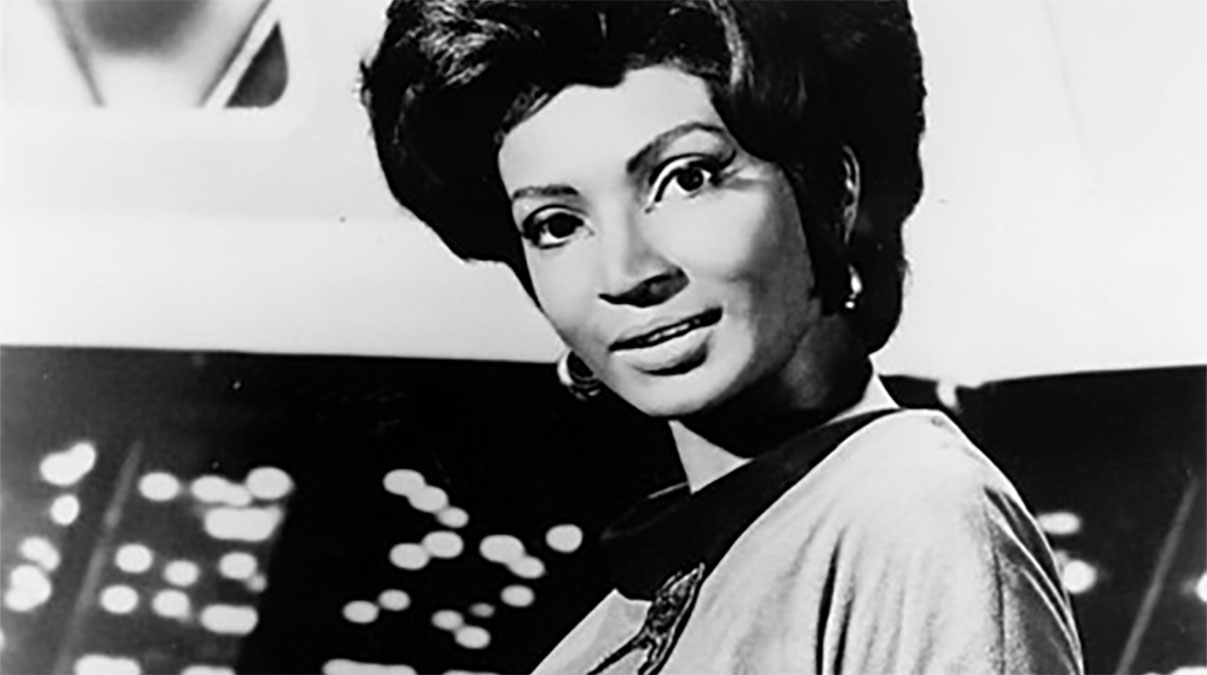
Sept. 8, 1966

Nichelle Nichols became one of the first Black women to play a lead role on television, portraying Communication Officer Lt. Uhura on “Star Trek.”
Ebony magazine featured her as the first Black astronaut, “a triumph of modern-day TV over modern-day NASA.” A talented singer and dancer, Nichols told creator Gene Roddenberry after the first season that she planned to leave — news that devastated him. At a fundraiser after that, an organizer told her that her greatest fan wanted to meet her. When she turned around, she found herself staring at Martin Luther King Jr., who raved about what her role meant to him, his family and others around the world.
“When I could finally catch my breath after hearing so many accolades from a man I considered as my leader, I thanked him and then told him I was leaving the series,” she recalled. His smile vanished, and he told her that she must not leave: “You have opened a door that must not be allowed to close. For the first time, the world sees us as we should be seen, as equals, as intelligent people.”
In fact, he shared that “Star Trek” was the only show that he and his wife let their children stay up late and watch, “You are their hero!”
The next day, Nichols told Roddenberry she would stay, sharing King’s words. When she looked back at Roddenberry, a tear slid down his face. “And Gene,” she recalled, “was not a man to cry.”
After “Star Trek” ended in 1969, she produced educational programs related to space and challenged NASA to “come down from your ivory tower of intelligent pursuit, because the next Einstein might have a Black face — and she’s female.”
Afterward, she led an astronaut recruiting program for NASA that changed the faces of those who went into space. Sally Ride became the first woman in space, Guion Bluford Jr., the first African American in space, and Mae C. Jemison, the first Black woman in space who later played a part on “Star Trek: The Next Generation,” the first real astronaut to do so.

